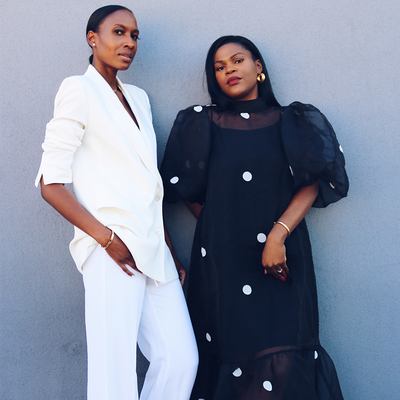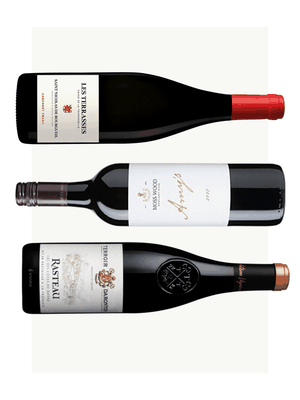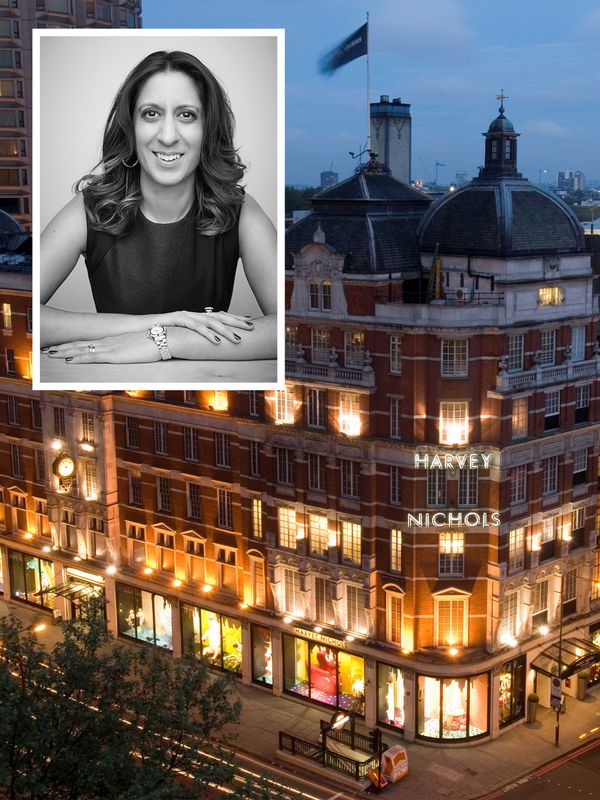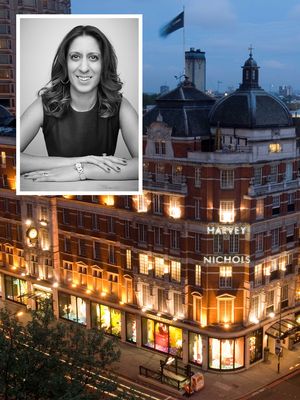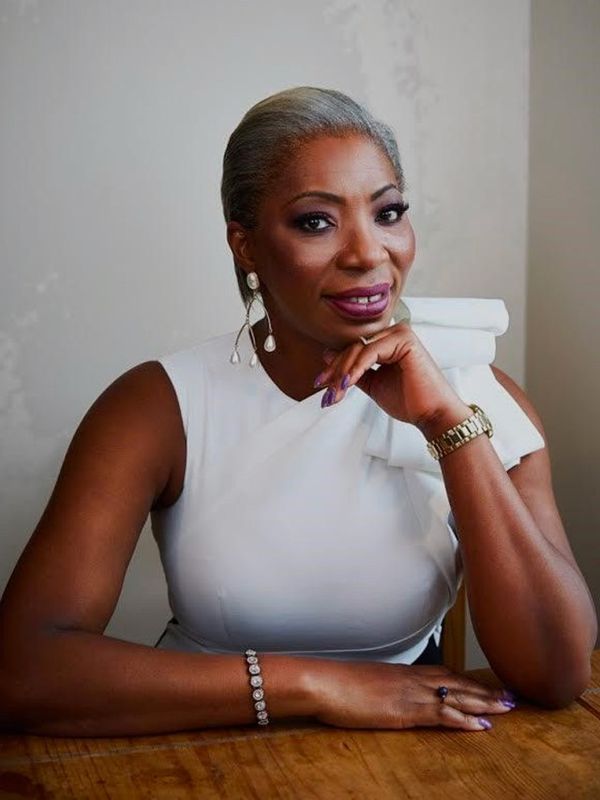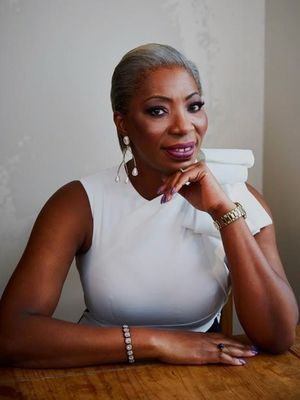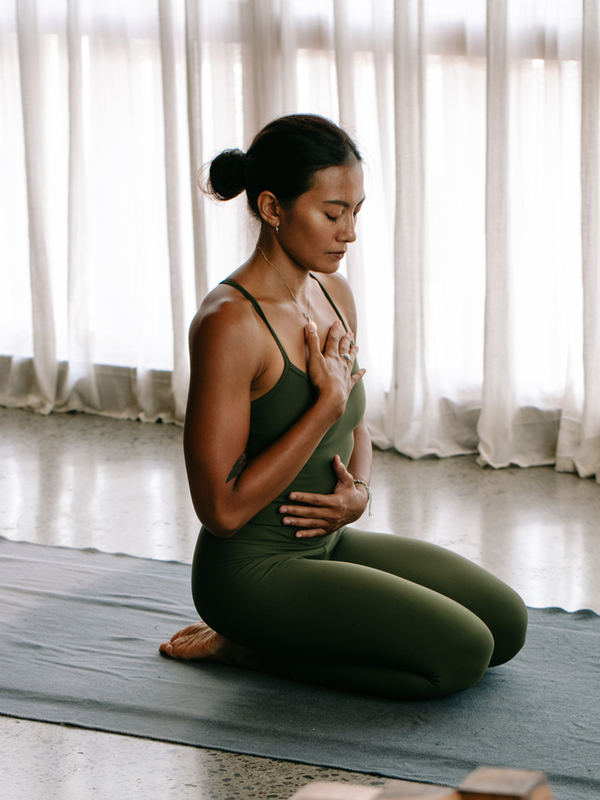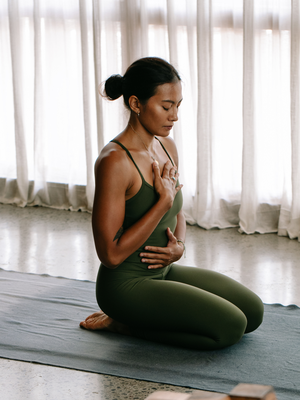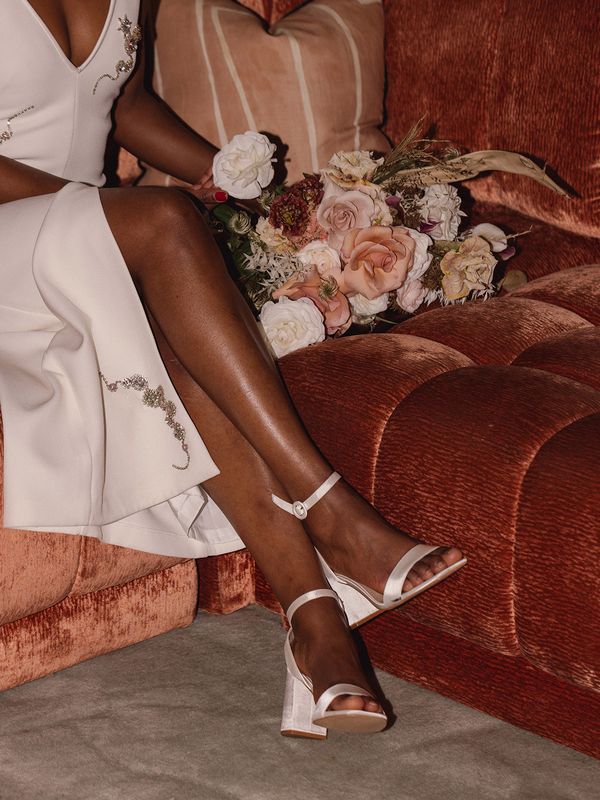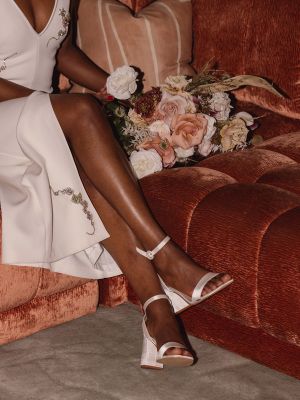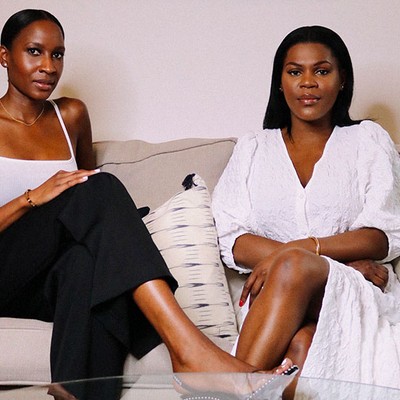
Business & Black Lives Matter: What Comes Next
First, can you start by talking a little bit about your individual heritage?
Ann Marie: I'm from a Black Caribbean background. I was born in London but grew up in Kingston, Jamaica and I think of Jamaica as home. It's where I lived during my formative years and also where I identify most with the culture. When I think of home, I’m reminded of its warmth, the bold, vibrant colours and personalities, the famous reggae music and the intense flavours and spices used in our food. Growing up there massively impacted the person I am today. It has shaped my character and my drive to succeed. At a crucial point in my development, the advantages of living in a country where the majority of people shared the same skin colour as mine and seeing people of colour in positions of power and influence was a powerful, subliminal message. It helped me believe no goal was out of reach and gave me the confidence to realise I too could aspire to be a leader.
Ana: I was born in Angola and lived there until the age of five. My parents moved us to the UK in the early 90s to give our family better opportunities. Although the majority of my life has been spent living in London, the culture and traditions from Angola are very much a part of who I am. They influence my decisions and allow me to see the world from two different perspectives. My ambition and drive are tied to my country of birth, the people of Angola are resilient and full of life, despite the country's challenges. The country is beautiful, the food is a fusion of Portuguese and local African cuisine, the music is a mixture of African tones and Latin rhythms – and some of my fondest memories come from time spent in the capital Luanda with my grandparents at the beach. But I also have a bond with the UK, more so London, which is a melting pot of cultures and ethnicities – my life has definitely been shaped from an amalgamation of these two different worlds. Being a child of immigrant parents is something I’m proud of. My parents successfully raised six children and changed the perception of immigrants in a country that sets limitations on people of colour.
Tell us a little bit about your career path to date…
Between us, we’ve spent the best part of three decades helping to build brands in fashion, marketing and advertising. These industries have provided us with invaluable experience when it comes to strategic thinking and creative execution, which has helped us launch our own business, Inclusive Consultancy. Working in an office setting was the first time either of us can remember really having to deal with issues around race and having to adapt certain elements of our appearance and personalities to fit in with what was deemed acceptable. We were both also struck by the distinct lack of people who looked like us in leadership roles and we both felt genuinely worried about what our career progression and opportunities would look like as a result.
What’s it been like trying to forge a career as women of colour in the UK?
We've both gone to have fulfilling careers in our respective industries, but it has never felt like a level playing field. Climbing the ladder has been challenging due to the prevalence of unconscious bias and the negative impact it has in the workplace. We've often been the only black woman in the room and had to find a way to get comfortable with that. Then there are the issues around ethnic and gender pay disparities. It sounds like a cliché, but as women of colour, we've had to work so much harder just to earn a seat at the table – all while being exposed to numerous microaggressions such as subtle racist jokes and playing up to racially infused stereotypes. Until now, this is something we accepted as the norm. But because of our passion and commitment to what we do, there’s been something really empowering and unifying about the recent movement that has given us the opportunity to call out experiences that simply aren’t okay.
It feels like the BLM movement is prompting real change. Would you agree?
Absolutely. The recent racial tensions in the US and the senseless killing of George Floyd being broadcast over social media have shone a light on a problem that has been overlooked for years. It's sad that such a grave situation had to be the catalyst, but it’s opened an opportunity for dialogue which didn’t really exist before now. The timing was a perfect storm – the world was at a standstill due to the spread of coronavirus and people had fewer distractions, more time to listen and a heightened sense of empathy. People were certainly quick to show off their solidarity on social media, but almost two months on, the conversations we’ve had with businesses and brands feels as though there’s a real level of commitment to change.
What does your business Inclusive Consultancy aim to do and what services does it provide?
We’re a boutique Diversity & Inclusion (D&I) agency aimed at helping businesses and brands embed equality into the core of what they do. With a focus on race and gender equality within the modern workplace, we provide consultancy services such as developing and codifying D&I policies, hiring and retaining diverse talent and aligning external marketing and branding with a D&I agenda, as well as training and workshops.
The topic of D&I is more important now than ever, both in and out of the workplace. Lack of representation of minority groups is a prevalent issue, but one which was all too often swept under the carpet. George Floyd's murder and the racial incident involving Amy Cooper have brought these issues right to the forefront. This, coupled with the substantial research from the likes of McKinsey and the Harvard Business Review, prove that a focus on D&I enhances and increases creativity, innovation and profits – in fact, companies with diverse management teams often report a whopping 19% increase in revenues.
Is there a specific kind of business you’re looking to help?
We've targeted the fashion industry as it’s an industry we're both passionate about and have extensive experience in but one we feel has so much work to do in terms of equality and representation. However, the solutions we provide can be tailored to most industries. The core issues remain the same, and we already have clients across a broad spectrum of fields.
What can you bring to businesses as external consultants that they can’t get from their own internal systems?
Put simply – perspective and action. These issues demand a period of reflection that often leads to difficult conversations. We’re equipped to help navigate teams through this and support them to make real change. It’s easier to work through bias and judgement and get real perspective from our consultants, who are not only specialists but are also of varying ethnic backgrounds. They’ve lived these experiences, too. Many companies build D&I committees with black and brown staff members who already have enough on their plate or aren’t necessarily trained or well-equipped to deal with these issues. Working with external consultants means you have tangible checks and balances to ensure you have an action plan in place.
What has the response to the business been since the BLM movement took off?
Overwhelming! It has shown us there are many businesses taking this agenda seriously. We always say D&I should be business critical not optional and it's good to see so many businesses taking this approach. The BLM movement has given it a sense of urgency, which businesses didn't have before and although great, there are still a number of businesses within industries like fashion, media, PR and other creative fields that are still lagging behind. We've noticed many companies adding more representation in their content and external messaging but more needs to be done in terms of internal representation, within head offices and more importantly in senior leadership teams.
What are the main priorities businesses should be looking to make?
First and foremost, businesses should ensure their senior leadership team are signed up to a D&I agenda, as true change always comes from the top. They need to be honest and transparent about where they are in terms of representation and where they want to be and then ensure their policies and procedures align with this. Many companies are committing to a pledge to hold themselves accountable, for example, committing to increase diverse hires by 10% within the next year and actively attempting to achieve that goal. Education and training are also key to ensure there's an understanding of the importance of diversity and inclusion at all levels of the organisation and the impacts of bias are being accounted for in decision making. Another top priority is a focus on hiring, retaining and developing diverse talent. This is where inclusivity comes into play. To retain diverse hires, the company culture must be inclusive. Retention and development can then be further strengthened by tracking promotion rates and building mentorship programmes.
In your view, how can businesses and office teams better understand what social and racial bias is and begin to tackle it?
Businesses first need to acknowledge that unconscious bias is a real concept and something we all have. Unconscious biases are the underlying attitudes and stereotypes we unconsciously attribute to groups of people that affect how we understand and engage with them. There are numerous types and they can be very damaging, especially in the workplace. For example, performance bias is making an assumption about someone's abilities based on a stereotype. So, when we're used to seeing predominantly white males as heads of state and black women as cleaners, that narrative tells us black women are not as competent as white men, which obviously isn't true. These are the types of things we talk about in workshops – how to check your bias and stop it from negatively affecting your decision-making process.
How should businesses look to overhaul their hiring processes so that people from different backgrounds are given equal opportunities?
The first step is to look at your talent pipeline. A few good ways of searching for diverse candidates are through employee referrals, and recruitment agencies that specialise in diversity. You could also align with university diversity associations to find graduate hires. At university we were part of an Afro-Caribbean Society which produced many top graduates. If you've advertised a job externally, to reduce bias in the screening process you could practice 'blind' recruiting, where an applicant's personal details, such as name and gender are removed from their CV or LinkedIn profile so it is only being assessed on educational and career achievements. The new Unbiasify Google Chrome extension can be a good tool for this. When it comes to the interview, this should be done by a diverse panel – which can be outsourced if you don't have the representation internally. We’d always advise diversity training for all staff involved in the recruitment and/or interview process.
There was a lot of anger following the unlawful killing of George Floyd. Why do you think this has been such a catalyst for change?
George Floyd's murder highlighted many of the injustices that happen to black people on a daily basis, whether it be in the form of police brutality, discrimination at work or racial profiling. The visceral image of a white man casually kneeling on a black man's neck caused everyone, regardless of race, to pause for a moment of self-reflection. For those of us in the black community, we saw a man that looked like our brother, husband or son. The narrative is that we die, we don't succeed. There's a line from Reverend Al Sharpton's piercing eulogy that really resonated with us – he said that Floyd’s story is the story of all black people, because for the past 400 years, the reason we could never be who we wanted to be was because there was and still is a knee on our neck. Those eight minutes and 46 seconds signified how long black people have been oppressed, marginalised and silenced. There's more than enough representation of black people being killed but hardly any when it comes to black CEOs, black heads of state and the list goes on.
What parting words would you share with white people who have had more opportunities than a lot of the BAME communities?
We would encourage white people to be aware of their white privilege. This has nothing to do with income or social status but speaks to the daily struggles you don’t have to deal with because you are white. An example of this is feeling safe when a police car pulls up behind you, instead of fearing that you may be discriminated against. Be sensitive and empathetic to the effects that social and racial injustices are having on your black and brown colleagues and friends. If you choose to be an ally and stand in solidarity with ethnic minorities, take it seriously. It's not a trend or a reason to post on social media – these issues impact people’s lives. This is a moment of introspection, a time to ask yourself are you being an ally in action? Do you treat people equally regardless of the colour of their skin?
For more information, visit InclusiveConsultancy.com or follow @InclusiveConsultancy
DISCLAIMER: We endeavour to always credit the correct original source of every image we use. If you think a credit may be incorrect, please contact us at info@sheerluxe.com.

